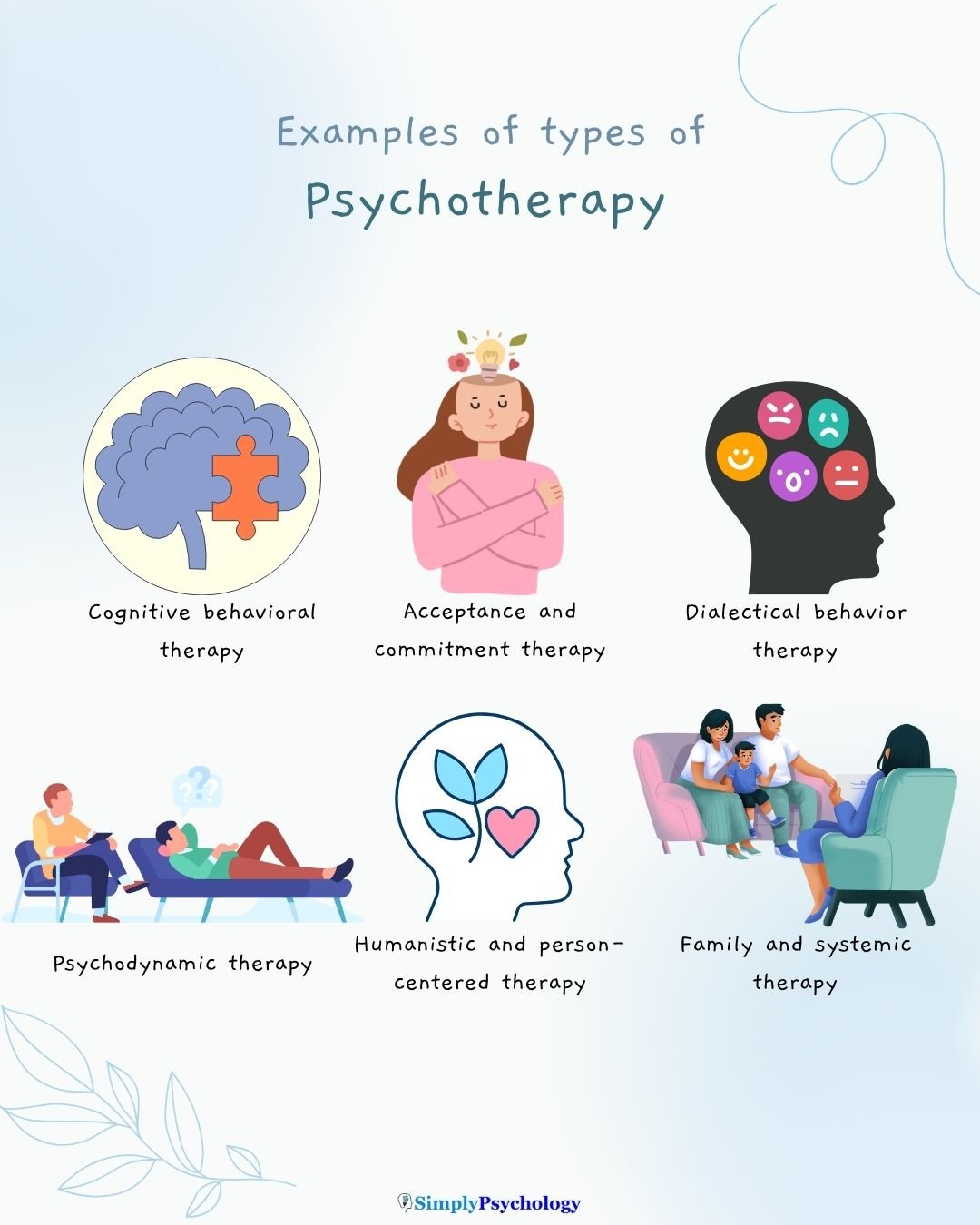A Comprehensive Guide to the Numerous Kinds Of Coaching and Their Effect
Therapy includes a variety of healing techniques, each created to meet one-of-a-kind psychological health and wellness needs. From the structured strategies of Cognitive-Behavioral Therapy to the empathetic nature of Person-Centered Therapy, these techniques provide distinctive paths to personal growth. Family treatment and Dialectical Habits Therapy provide added frameworks for healing, while team counseling cultivates community assistance. Understanding these varied techniques can illuminate their extensive effect on specific well-being. What stays to be discovered are the ins and outs of each approach.

Recognizing Cognitive-Behavioral Therapy (CBT)
Although lots of healing approaches exist, Cognitive-Behavioral Therapy (CBT) stands out as a result of its organized, ambitious nature. This type of treatment is based upon the premise that thoughts, sensations, and habits are adjoined, and by transforming unfavorable thought patterns, people can change their psychological reactions and actions. CBT uses numerous methods, such as cognitive restructuring, which helps customers determine and challenge distorted beliefs. Behavior activation encourages engagement in enjoyable tasks to deal with anxiety.
Typically, CBT is a temporary therapy, typically lasting between 12 to 20 sessions, making it accessible for those looking for fast outcomes. Its effectiveness has actually been well-documented in treating stress and anxiety problems, depression, and various other mental health and wellness problems. The therapist's role is to lead customers with workouts and research assignments, fostering self-awareness and promoting long-lasting coping methods. This practical technique equips people to take control of their mental well-being, eventually causing boosted life contentment.
Exploring Person-Centered Therapy
Person-Centered Therapy, created by Carl Rogers, offers a different technique to Cognitive-Behavioral Therapy by highlighting the client's subjective experience. This therapeutic design focuses on the person's perspective, promoting an atmosphere of compassion, unconditional positive respect, and authenticity. By allowing clients to explore their feelings and ideas without judgment, specialists help with personal development and self-discovery.
The core tenet of Person-Centered Therapy is the belief that people possess the inherent ability for self-healing and personal development. In this setup, the therapist works as a helpful guide instead than a directive authority, urging customers to organize their very own journey. This approach is specifically efficient for those grappling with concerns such as low self-esteem, anxiousness, or anxiety, as it empowers them to face and comprehend their feelings. Inevitably, Person-Centered Therapy grows a solid therapeutic alliance, cultivating trust fund and openness important for purposeful modification.
The Function of Family Members Treatment in Healing
Family treatment functions as an important part in the recovery procedure for people and their look at this site connections. This therapeutic approach focuses on improving interaction, solving disputes, and fostering much deeper connections amongst relative. By dealing with dysfunctional dynamics, family therapy urges each member to reveal their ideas and feelings in a risk-free setting, promoting understanding and compassion.

The impact of family members therapy expands my link beyond the sessions, as enhanced partnerships can result in boosted psychological wellness for all entailed. In general, family members therapy plays a crucial role in recovery by fostering unity, resilience, and shared support among household members, ultimately assisting them toward a healthier, more satisfying life with each other.
Unloading Dialectical Behavior Modification (DBT)
Building on the structure of therapeutic strategies that enhance psychological well-being, Dialectical Behavior modification (DBT) supplies a structured framework for individuals battling with intense emotions and behavioral difficulties. Established by Marsha Linehan, DBT incorporates cognitive-behavioral strategies with mindfulness practices, aiming to aid customers take care of overwhelming feelings and enhance social performance.
The treatment is particularly helpful for those detected with Borderline Personality Disorder but is likewise suitable to an array of other mental health and wellness problems. virtual therapy. DBT contains individual therapy sessions and abilities training teams, concentrating on four essential skill sets: mindfulness, distress tolerance, emotion policy, and interpersonal efficiency
The Advantages of Team Coaching Procedure
While private treatment supplies useful understandings, team therapy sessions supply unique benefits that can considerably boost the healing experience. One vital advantage is the sense of community that emerges among participants. Individuals typically discover convenience in sharing their experiences with others dealing with comparable difficulties, promoting an encouraging setting that minimizes sensations of isolation.
Team sessions urge varied point of views, enabling individuals to find out from each various other's coping approaches and insights. This collective knowledge can cause boosted analytical abilities and a broader understanding of personal issues.
In addition, team counseling typically promotes accountability, as members encourage one another to seek their goals and comply with their commitments. Ultimately, the cost-effectiveness of group treatment makes it an obtainable option for several individuals looking for support. In general, the joint nature of group counseling sessions can substantially enrich the restorative trip.
Regularly Asked Questions
What Credentials Do Therapists Need to Exercise Therapy?
Therapists normally require an appropriate level in psychology or counseling, together with monitored medical experience. Furthermore, they have to obtain proper licensure or qualification to exercise legitimately, ensuring adherence to professional requirements and moral standards.
How Do I Select the Right Sort Of Treatment for Me?
Choosing the ideal sort of treatment involves evaluating personal needs, checking out different strategies, taking into consideration specialist specializeds, and looking for recommendations. Understanding individual goals and preferences can significantly improve the efficiency and contentment of the healing experience.

Are Online Therapy Sessions as Effective as In-Person Ones?
The performance of online therapy sessions compared to in-person ones often relies on private preferences and conditions. Research study suggests that both methods can generate positive results, though some might discover better comfort in face-to-face communications.
Exactly How Lengthy Does Counseling Commonly Last?

What Should I Expect During My Very First Counseling Session?
Throughout the very first counseling session, customers can expect an intro, discussion of their concerns, facility of goals, and an overview of the therapy process - virtual therapy. This first meeting aims to develop rapport and warranty comfort